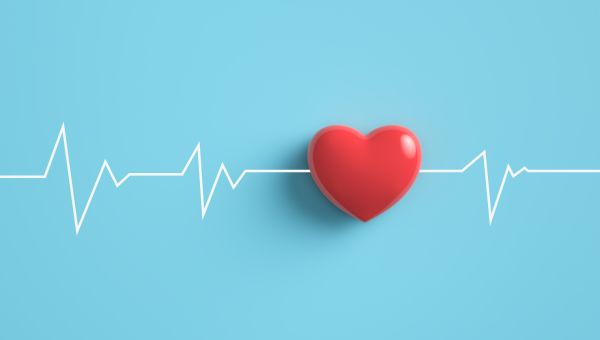6 worst things for your heart
Skipping your workouts and yo-yo dieting can put your heart health at risk.
Updated on July 31, 2023

Heart disease is the number one cause of death for adults in the United States, killing one American every 33 seconds. Yet there are changes you can make that can reduce your risk and help you live a healthier life.
Heart disease is a catch-all term that includes a variety of conditions and events—such as heart attacks, strokes, and heart failure—and it’s often related to atherosclerosis, the formation of plaque buildup in the arteries. Warning signs of heart disease can vary from chest pain to numbness in the arms and legs, and they’re not always the same for women and men, so understanding the symptoms and risk factors is important.
“Men are more likely to survive a heart attack than women,” says cardiologist Ramavathi Nandyala, MD of Methodist Hospital in San Antonio, Texas. And while both men and women usually experience chest pain and pressure during a heart attack, women can have a heart attack—even without that common symptom. Women are more likely than men to have nausea, vomiting, and shortness of breath during a heart attack.
Smoking and a strong family history of heart disease put you at risk, but what about your eating habits and stress levels? Here are six things that can increase your heart disease risk—and ways to keep going strong.

Stress or trauma
Stress—whether related to work, relationships or parenting—is the number one risk factor Dr. Nandyala sees in her patients, especially women. “We keep adding more and more responsibility and stress on women,” she suggests. And traumatic events can also contribute to heart problems.
Stress causes the body to release adrenaline, which can cause arteries to go into spasms and your blood pressure to increase, Nandyala notes. Broken heart syndrome from an event like a death in the family can also cause the heart to “go into shock,” leading to a temporary type of heart failure.
Researchers from the University of Pittsburgh School of Medicine collected data from 272 women from ages 40 to 60 to learn more about how traumatic events can impact heart health. The study findings showed that women who were involved in at least three traumatic events during their lifetime—such as sexual harassment, a car accident, or the death of a child—had poorer endothelial function than those women who had not experienced trauma. The endothelium is the inner lining of the heart and blood vessels, and poor functioning may increase the risk of heart disease. A review of 23 studies in the Journal of the American Heart Association found evidence to support a connection between work-related stress and heart disease for both men and women.
Nandyala says that some stress in our lives is inevitable, but that it’s important to learn to cope with it. She recommends relaxing for a few minutes each day with reading, music, yoga, prayer, or any other activity that relaxes your mind. Exercise can also help you manage stress—a quick walk outside is a great move for your heart and your mood.
If you’re working through trauma, ask your healthcare provider (HCP) about resources and treatment options. If symptoms such as flashbacks and nightmares persist, you may have post-traumatic stress disorder, which can be treated with cognitive behavioral therapy, exposure therapy, or a type of therapy that uses a series of guided eye movements to help you process traumatic memories.

Meat-based diets
We’ve known for years that a diet rich in saturated fat and sodium increases the risk for heart disease. A study in the journal Circulation that looked at the diets of more than 400,000 men and women found a correlation between eating red and processed meat and increased risk of heart disease. An August 2022 study from the American Heart Association published in Arteriosclerosis, Thrombosis, and Vascular Biology sheds even more light on why: When you eat processed meat or red meat (like beef, pork, or venison), microbes that live in your gut feed on that red meat and produce chemicals in the digestive tract that are associated with a greater risk of cardiovascular disease.
When it comes to eating habits, Nandyala says a balanced diet is best. “Strictly avoiding carbs or fats isn’t always the best option because our bodies are made of protein, carbohydrates and fat,” she explains. If you do eat meat, reach for lean meats like turkey and chicken rather than overly fatty, processed meats like sausage and bacon. Plant-based proteins like tofu, beans, and nuts are also heart-healthy options.

Yo-yo dieting
Repeatedly losing and gaining weight, known as yo-yo dieting or weight cycling, may hurt your heart down the road.
One observational study presented at the American Heart Association's Scientific Sessions in 2016 looked at self-reported weight history for 158,063 post-menopausal women and grouped them into several categories: stable weight, steady gain, maintained weight loss, or weight cycling. The findings were eye-opening. The study showed that women classified as “normal-weight” who weren’t overweight or obese but lost and regained weight during the study period had 3.5 times higher risk of sudden cardiac death than women whose weight remained stable over time. “Normal-weight” study participants who reported weight cycling also had 66 percent increased risk of death from heart disease. While weight cycling was not associated with increased risk of death in women who were overweight or obese, carrying around extra pounds remains a major risk factor for heart disease.
Nandyala says the bottom line is that it’s more important to adopt and maintain a healthy lifestyle overall than to drop weight quickly by using drastic dieting tactics.

Obesity
Nandyala says obesity is another huge risk factor for heart disease. In fact, two out of every five adults in the U.S. is at a weight level defined as obese.
If you have extra body fat, especially around the belly and vital organs—known as “visceral fat”—you may be at increased risk for high cholesterol, high blood pressure, diabetes, and even osteoarthritis and breathing problems. Maintaining a healthy weight for your height allows blood to circulate through the body more efficiently and lowers your risk of many chronic health issues.
If you’re concerned about your weight, talk to your HCP about adding exercises to your routine and finding an eating plan that focuses on heart-healthy choices and appropriate portion sizes.

Skipping your workouts
Exercise not only reduces the risk of type 2 diabetes and certain cancers, but aerobic exercise (such as walking, jogging, biking, and swimming) strengthens your muscles and bones and can also help strengthen the heart and lungs. And that’s not all. The American Heart Association says that getting just 30 minutes of exercise a day, whether aerobic or resistance training, can:
- Improve blood circulation and cholesterol levels
- Help you manage your weight
- Help with smoking cessation
- Help you manage high blood pressure and lower your risk of stroke
- Boost energy levels and improve sleep
- Help manage stress
- Reduce the risk of coronary heart disease
- Lower the risk of age-related illnesses and diseases
Despite all the benefits, many people are still skipping out on regular exercise. The Centers for Disease Control and Prevention reports that only about half of all American adults meet the guidelines for aerobic activity, and even fewer (24.2 percent) meet the recommended amount of muscle-building exercises.
Talk to your HCP before you begin any new exercise routine. Once you get the green light, try a combination of both aerobic and resistance training. You can work in other heart-healthy moves like dancing, water aerobics, rowing, stair-climbing, and even housework.

Neglecting regular screenings
So many people come in and say, “I’m totally fit, so I definitely don’t have heart disease,” says Nandyala. But that’s not always the case. People who have a family history of heart disease should be especially diligent about checking in with their provider to make sure risk factors, such as high blood pressure or high cholesterol, are under control.
The American Heart Association recommends getting blood pressure screenings at least every two years if your levels are below 120/80 mmHg. If your numbers are higher, you may need more frequent screenings. Every four to six years, you should also receive a fasting lipoprotein profile, a measurement of your cholesterol and triglyceride levels. And starting at age 45, be sure to have your blood glucose checked every three years, or more frequently if you’re at elevated risk.

Centers for Disease Control and Prevention. Heart Disease Facts. Last reviewed May 15, 2023.
Mayo Clinic. Heart Disease. Last updated August 25, 2022.
Harvard Health Publishing. Understanding the heart attack gender gap. April 15, 2016.
Mayo Clinic. Broken heart syndrome. October 27, 2022.
Thurston RC, Chang Y, Barinas-Mitchell E, et al. Physiologically assessed hot flashes and endothelial function among midlife women. Menopause. 2017 Aug;24(8):886-893.
Sara JD, Prasad M, Eleid MF, et al. Association Between Work-Related Stress and Coronary Heart Disease: A Review of Prospective Studies Through the Job Strain, Effort-Reward Balance, and Organizational Justice Models. J Am Heart Assoc. 2018 Apr 27;7(9):e008073.
Mayo Clinic. Post-traumatic stress disorder (PTSD). Last reviewed December 13, 2022.
American Heart Association. Increased heart disease risk from red meat may stem from gut microbe response to digestion. August 1, 2022.
Key TJ, Appleby PN, Bradbury KE, et al. Consumption of Meat, Fish, Dairy Products, and Eggs and Risk of Ischemic Heart Disease. Circulation. 2019 Jun 18;139(25):2835-2845.
Rasla S, Garas M, Roberts MB, et al. Abstract 12888: Risk of Sudden Cardiac Death and Coronary Heart Disease Mortality in Postmenopausal Women With History of Weight Cycling. Circulation. 2016;134:A12888.
Kim MK, Han K, Park YM, et al. Associations of Variability in Blood Pressure, Glucose and Cholesterol Concentrations, and Body Mass Index With Mortality and Cardiovascular Outcomes in the General Population. Circulation. 2018 Dec 4;138(23):2627-2637.
American Heart Association. Yo-yo dieting dangerous even if you're not overweight. November 15, 2016.
National Institute of Diabetes and Digestive and Kidney Diseases. Overweight & Obesity Statistics. Last reviewed September 2021.
American Heart Association. Too much belly fat, even for people with a healthy BMI, raises heart risks. April 22, 2021.
American Heart Association. American Heart Association Recommendations for Physical Activity in Adults and Kids. Last reviewed April 18, 2018.
American Heart Association. Life's Essential 8 - How to Quit Tobacco Fact Sheet. Accessed July 31, 2023.
Centers for Disease Control and Prevention. Exercise/Physical Activity. Last reviewed December 15, 2022.
American Heart Association. Heart-Health Screenings. Last reviewed March 22, 2019.
More On


video

article

slideshow


video


video
